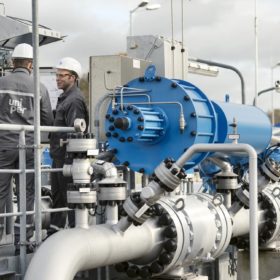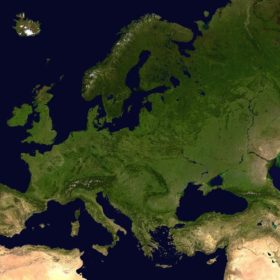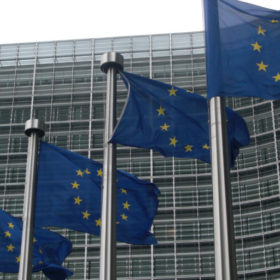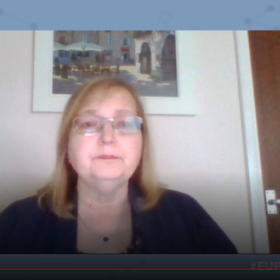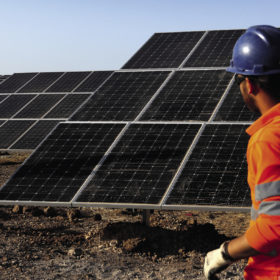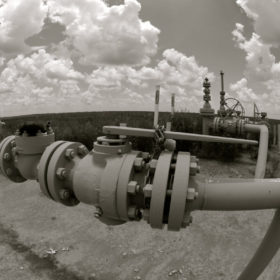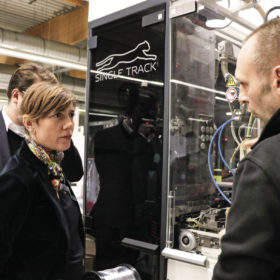Europe could double ambition of its hydrogen strategy – white paper
Big brands will have to put their money where there mouth is on carbon commitments, though, and the EU will have to put its shoulder to the wheel, particularly in respect of the commonly-heard call to dispense with red tape. The prize could be a call for 280 GW more renewables capacity by 2030.
‘Solar should be at heart of EU recovery’
Solarpower Europe has called on member states to put solar and battery storage front and center when it comes to drawing up the Recovery and Resilience plans needed to secure a slice of the bloc’s proposed €672.5 billion post-Covid stimulus package.
EU on track for 2030 renewables target – but could do more
With the SolarPower Summit 2020 taking place this week, organizer SolarPower Europe has assessed the plans drawn up by member states would mean the bloc sourcing 33.1-33.7% of its energy from clean power by the end of the decade, with the help of 19 GW of new solar per year.
SolarPower Summit 2020: Policy measures and open-source information key to PV sustainability
Rising volumes of solar capacity are to be welcomed but, as panelists at a session of today’s SolarPower Europe event discussed, the technology must be kept ethical and responsible. That means industry working together; new, harmonized, mandatory and voluntary policy instruments; and a focus on quantifiable, life cycle-based investor criteria.
French government considers cutting pre-2011 FITs
Financial newspaper Les Echos claims the government is mulling a renegotiation of historic feed-in contracts after the Court of Auditors in 2018 ruled the incentives too generous.
‘Energy transition requires us to do things better’
The annual EU PVSEC conference got under way virtually this morning via an online platform since the planned event in Lisbon could not go ahead due to the Covid-19 pandemic. Opening presentations revealed an air of optimism in the PV industry, amid expectations of a rapidly rising share in the energy mix, growing conversion efficiencies, advancing technology pathways and innovative solutions to the problem of integrating high levels of PV into electricity grids.
Terawatt scale by 2022
The solar sector is no stranger to breaking records. Perhaps the most impressive figure to emerge from SolarPower Europe’s new ‘Global Market Outlook’ is that the global solar sector will reach terawatt scale by 2022 – just four years after the 500 GW milestone was reached. Michael Schmela from SolarPower Europe sets out the reasoning behind this and other key findings in the report.
Industry group urges Europe to prioritize green hydrogen
Renewables are the best way for Europe to decarbonize, the Choose Renewable Hydrogen coalition said this week, prior to the upcoming release of its hydrogen and energy-system integration plan.
Climate-neutral EU before 2050
The European Commission has positioned the Green Deal at the center of its policy priorities. The goals have been set: climate-neutrality, zero greenhouse gas emissions, and the complete decarbonization of the energy sector by 2050. The stakes are high, writes SolarPower Europe CEO Walburga Hemetsberger, but thus far Commission President Ursula von der Leyen has made good on her promises.
Covid-19 weekly round-up: Ups and downs from the US residential market and one Swedish city tries to attract Europe’s best and brightest
Industry body SolarPower Europe is trying to stay bullish about the lingering effects as the continent starts to come out of lockdown and one analyst has predicted a healthy large scale solar market will carry the US through the crisis.
